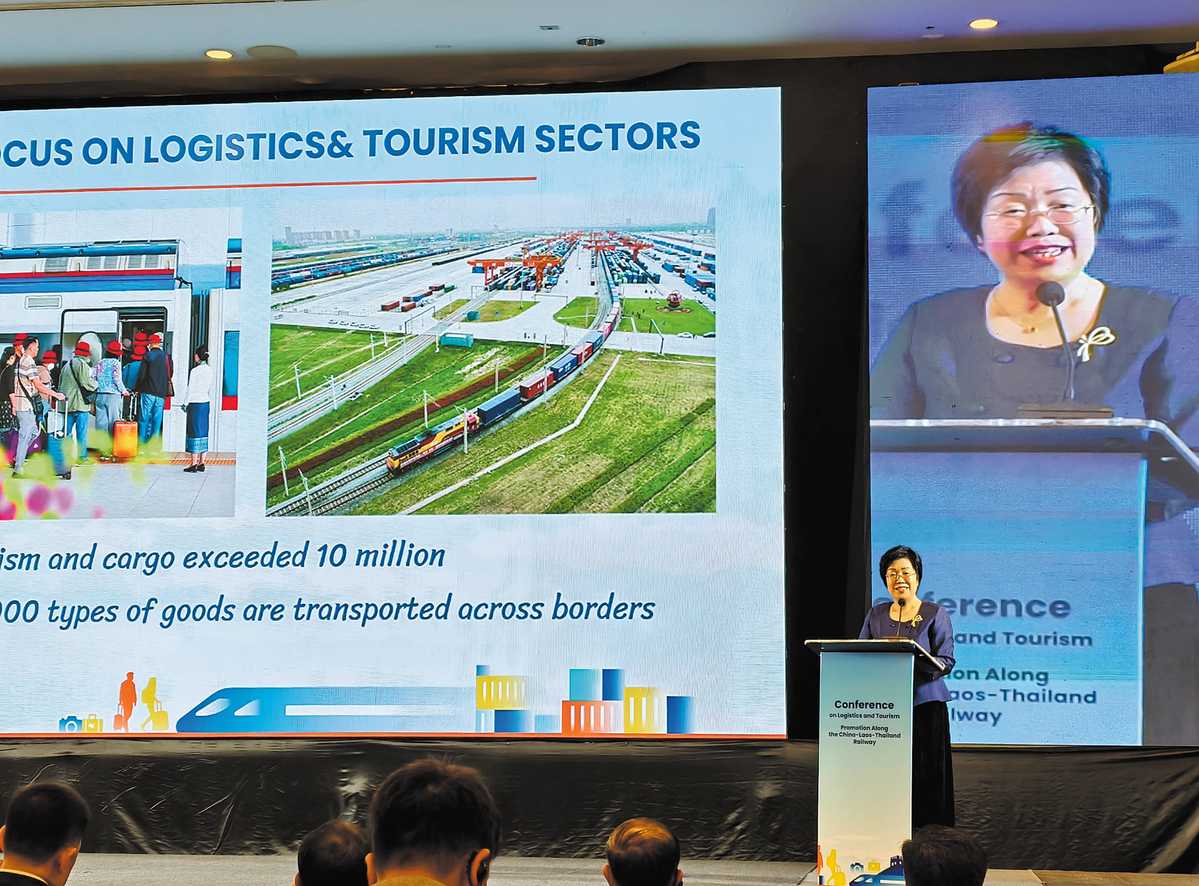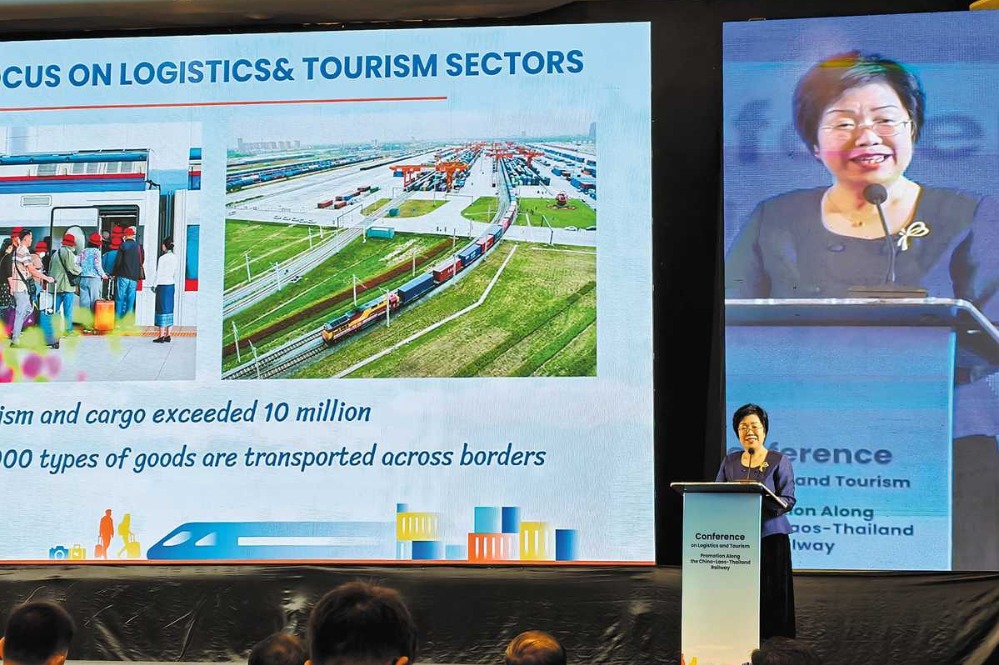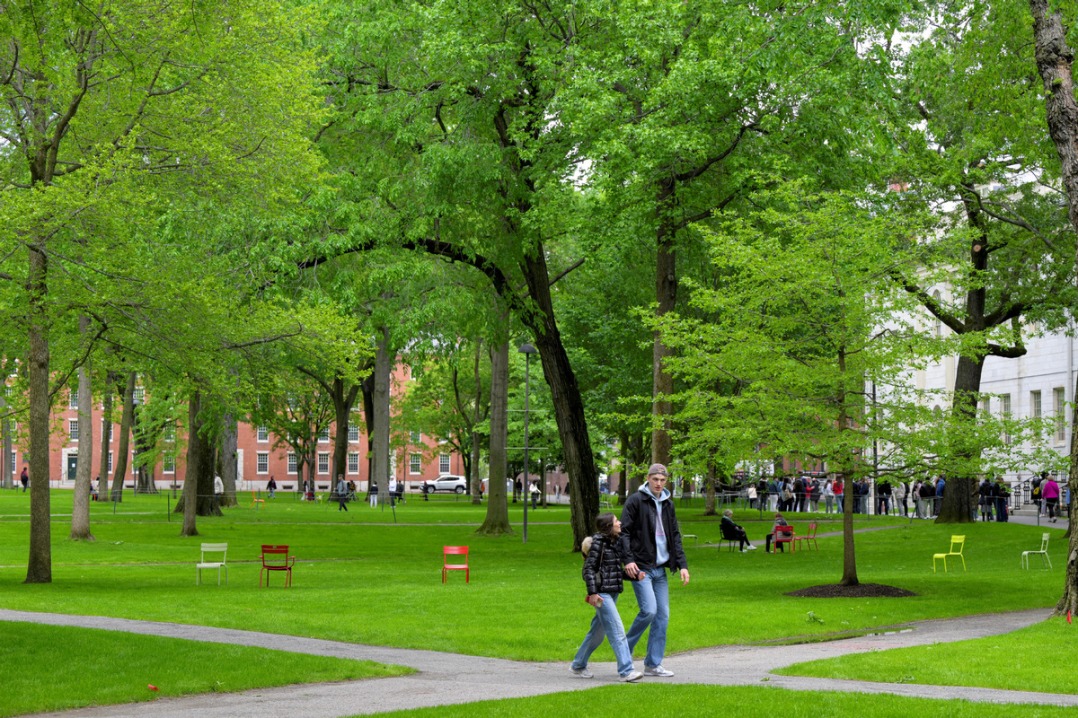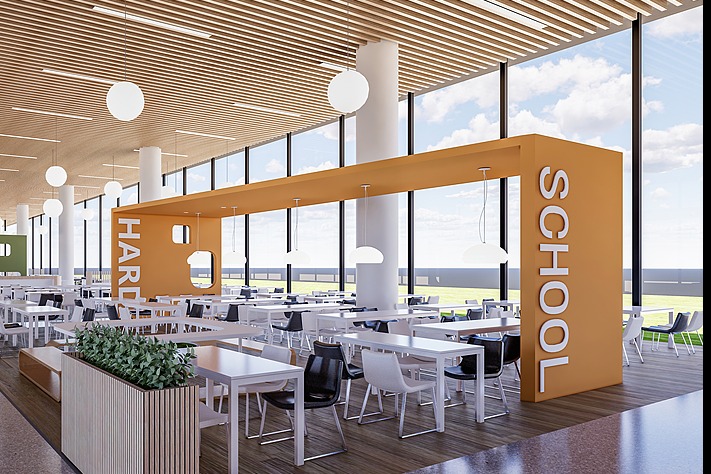Railway set to boost growth across SE Asia
Conference highlights how China-Laos-Thailand corridor links tracks, futures


New avenues of cooperation can be forged through improved transportation connectivity, creating economic opportunities for China and Southeast Asia, speakers said at a gathering in Thailand on Tuesday.
"Transport connectivity, particularly the railway system, is a strategic economic corridor for boosting economic growth, regional resilience and deepening intercountry integration across the Greater Mekong Subregion," said Suriyan Vichitlekarn, executive director of the Mekong Institute, which was founded by the six subregional countries — Cambodia, China, Laos, Myanmar, Thailand and Vietnam.
Speaking at the Conference on Logistics and Tourism Promotion Along the China-Laos-Thailand Railway, held in the northeastern Thai city of Khon Kaen, Suriyan said logistics and tourism, with creative industries, wellness and medical tourism, stand to benefit from this corridor.
"Logistics efficiency is a tangible leap forward for cross-border trade facilitation. The railway brings exciting possibilities for revitalizing regional tourism. It catalyzes inclusive economic opportunities, particularly for cultural and community-based tourism," Suriyan said.
Organized by the Mekong Institute, the conference was co-hosted by the Chinese Consulate General in Khon Kaen and the Foreign Affairs Office of China's Yunnan province. More than 300 participants attended, including government officials, scholars and industry representatives from China, Laos, Thailand and other regional countries.
"The cooperation practice of the China-Laos-Thailand Railway is a vivid example of mutual benefit and win-win between China and its neighboring countries," said Liu Hongmei, China's consul general in Khon Kaen. "The conference provides a mechanism guarantee for the railway to fully exert its benefits."
With greater logistics efficiency and deeper tourism collaboration ahead, the railway will not only serve as a driver of regional economic growth but also as a bridge bringing people across the region closer, she said.
Jakkaphon Tangsutthitham, Thai vice-minister of tourism and sports, said the railway is more than just a physical link — it also serves as a strategic gateway connecting China with Southeast Asia. It will be a driving force for the tourism industry that links cultural, natural and creative destinations across the region.
"However, infrastructure alone is not enough," he said, emphasizing the need for cross-border coordination. Apart from streamlining border crossings and improving customs and immigration processes, "we should also engage and empower local communities as stakeholders along the railway route to enhance services and create more attractions", he said.
Jakkaphon reaffirmed the Thai government's commitment to strengthening cooperation with China and neighboring countries in tourism and logistics.
The China-Laos-Thailand Railway, with Thai sections still under construction, will connect Bangkok with Yunnan via Laos, where a high-speed line is already in operation. The project's second phase in Thailand is expected to be operational by 2030.
Seamless connectivity
"With extension of this railway corridor toward Thailand and beyond, we foresee even greater opportunities for seamless regional connectivity, linking our economies to greater opportunities with countries involved in the Belt and Road Initiative," said Daochinda Siharath, managing director of the Lao National Railway Authority.
Industries such as agriculture, trade and tourism will benefit from the improved connectivity, bringing greater experiences for consumers and higher incomes for service providers — a win-win situation for both, Daochinda said.
"This also helps to foster cultural exchanges and promote mutual understanding between people," he said. "Together, we can make this corridor one of the most attractive travel routes in Asia."
To accelerate development and cooperation, Suriyan of the Mekong Institute emphasized the need to adopt digital innovation and sustainability practices. "Emphasizing smart logistics systems and digital tools such as innovation, big data and smart tourism platforms can transform operations, enhance traveler experiences and drive efficiency — while maintaining sustainable and resilient growth," he said.

































